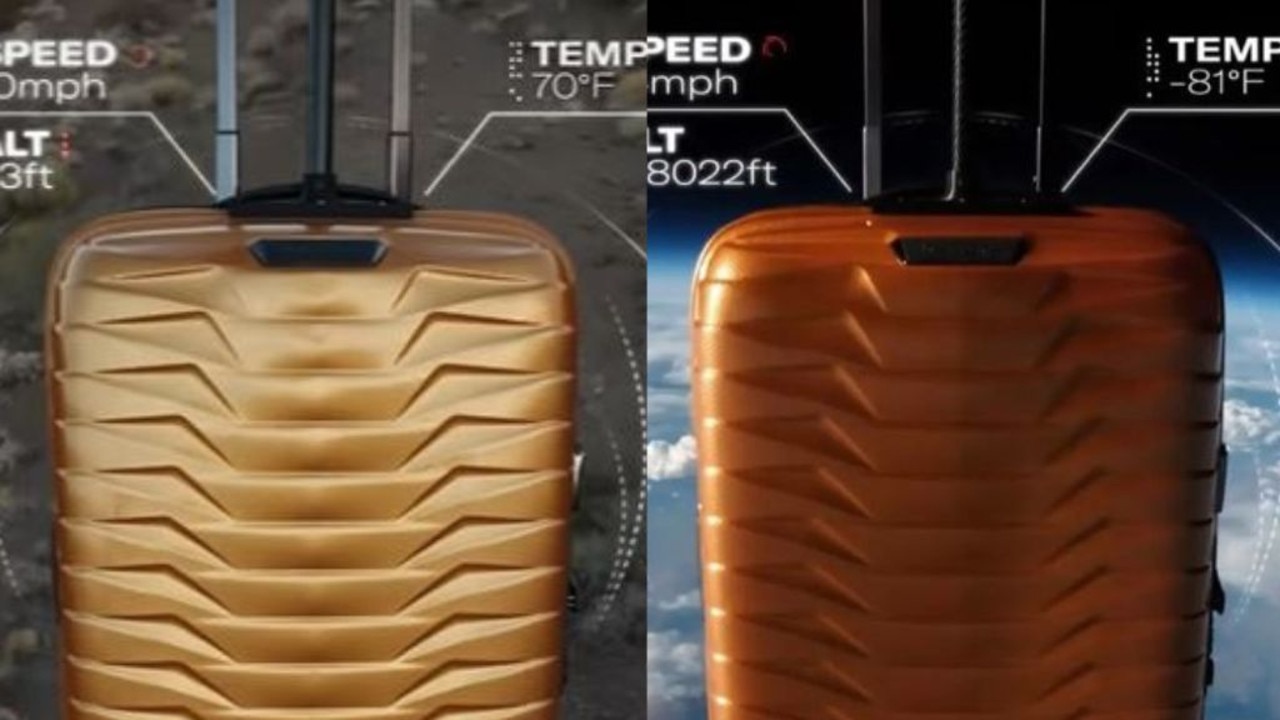‘Beijing Bikini’ trend takes tourists by surprise in China’s capital
A tourist has made a titillating discovery involving the “Beijing Bikini” – but it turns out China’s government isn’t a fan of the trend.
In Beijing, I snapped as many photos of Tiananmen Square as the next sunburnt tourist. But it wasn’t the city’s iconic attractions that made the biggest impression on me.
Rather, it was the ancient megacity’s unheralded quirks – the “Beijing Bikini”, vaping urbanites adorned in “Hanfu” and exceptionally cordial scammers – that stimulated so much exhilaration.
I quickly realised the best way to make novel discoveries about the capital is to drift around it without an itinerary, map, schedule – or clue.
To quote Forrest Gump (or thereabouts), travelling free-range in Beijing is like living life as a pinball – you endlessly ricochet through an otherwise invisible labyrinth.
In fact, the more lost, re-rerouted, distracted or diverted I became, the more Beijing’s wonderfully weird world revealed itself.
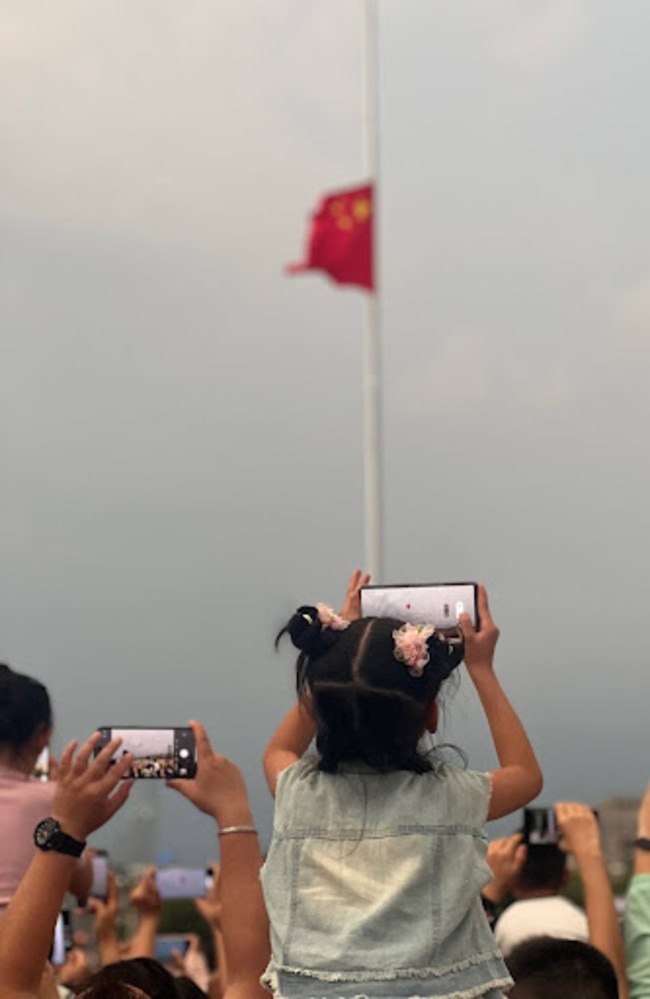
‘Beijing Bikinis’ everywhere
I made one of my most titillating discoveries early.
It was the spectacle of leathery old guys, mostly out for walks, seated in shop fronts or lazing in the shade pools of serene parks – all with their T-shirts jacked up to their rib cages.
The Beijing Bikini essentially involves using your gut as a ledge for your T-shirt. You also need to roll up your T-shirt at the back to better secure it above your midriff – fashioning it a bit like a sports bra.
I marvelled at the many locals who adopted this exotic sartorial coolant system, which rightfully “holds space” alongside sunbrellas and souvenir fans as mitigants to hotter and longer heatwaves in China.
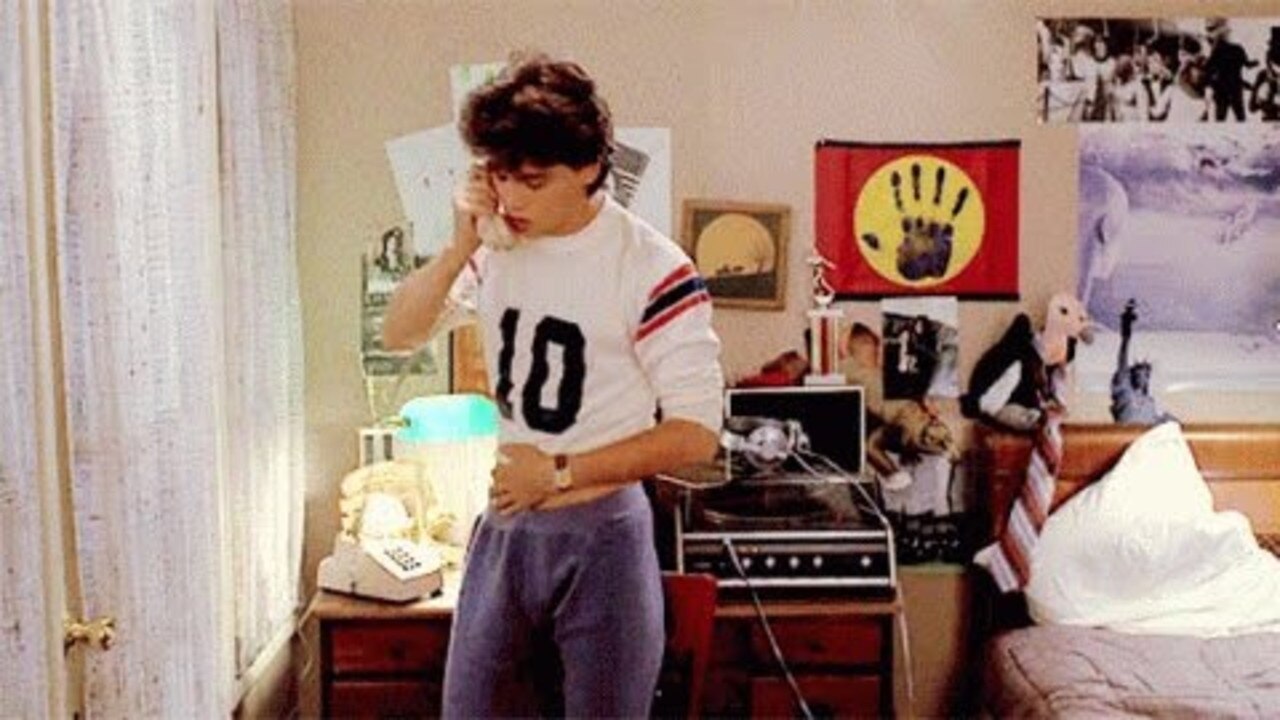
I test-drove the Beijing Bikini privately one night during my stay, but my T-shirt fell down like an elevator in a hasty divorce from its cables.
Never mind.
I got to wander widely through steamy Beijing Hutongs, sizzling streets and mega malls, and as I did, I aimed my camera at men in Beijing Bikinis with gusto.
I captured one coming out of the underpass with a group of friends. I chanced on a close up of another who was dining by a restaurant window with a companion. One of my favourite shots was a portrait of a Beijing Bikini-clad man eating a kebab right by the stand, at the Beer Culture and Life Festival.
Novel as the Beijing Bikini was to my tourism, there’s no such honeymoon in the eyes of the government.
As the Beijing Regulations on Promoting Civilised Behaviour specifies, shirtlessness – along with spitting, littering and a long list of other incivilities – attracts a fine.
There’s a debate to be had about whether the Beijing Bikini is an act of shirtlessness or shirtedness. But every new sighting I made, all the while, was a thrill as memorable as the last.

Fraternising with extremely hospitable scammers
Beijing’s “art student scam” is about pressuring witless tourists to buy bogus art at exorbitant prices.
Every scammer I socialised with specialised in a form of flattery that I was delighted to embrace.
I had to tell one that I in fact was not a professor, no matter how distinguished I looked in my Kmart walking shorts and colourful resort shirt.
Another proposed I might be an artist, since my hair was so … err … something …. (the thin feathers winning so much admiration happened after an outburst with office scissors in the hotel, and all there really was to add was that I could feel a tail of some description back there).
Syrupy tourist stretch Wangfujing Street is one of the spiritual epicentres of the art student scam but the scam is infamous in various tourist traps in Beijing and beyond.
The scam experience was unplanned for me, but it’s easy to get involved. All you really need to do is stand still in Wangfujing Street, in an “I Love Beijing” T-shirt, and breeze yourself frantically with a handheld souvenir fan.
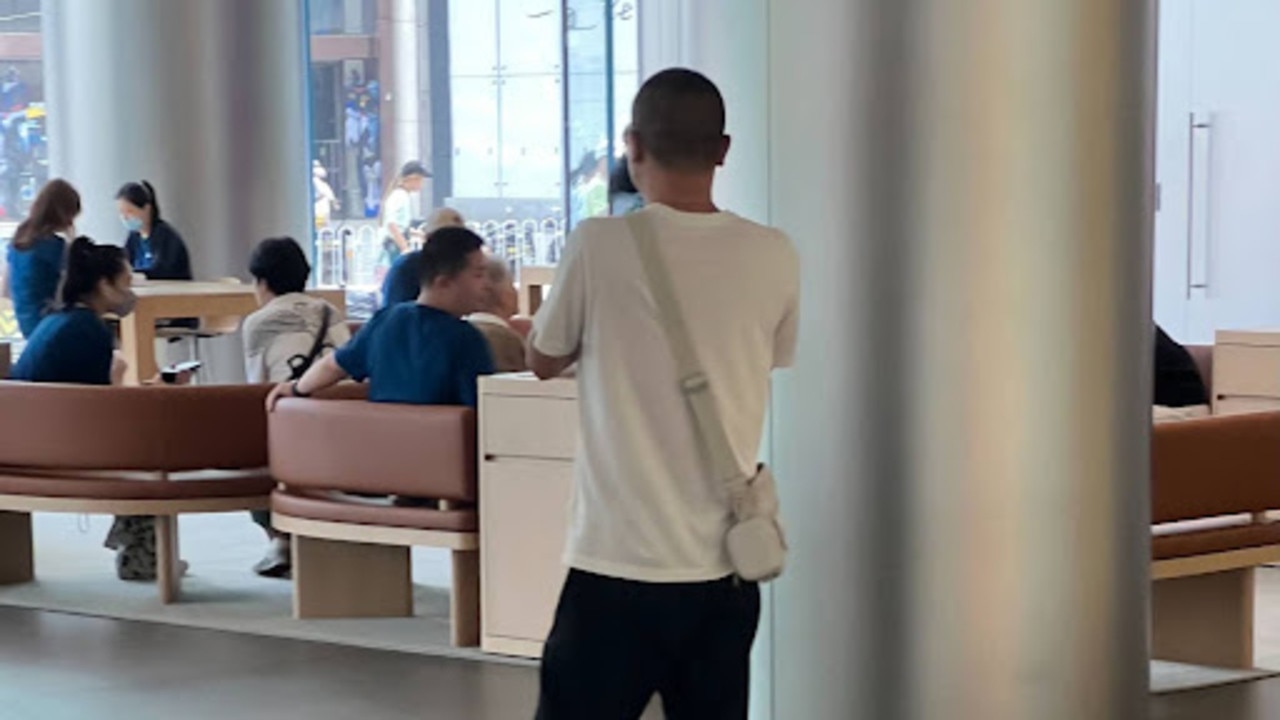
The Hanfu dream, up in smoke
What was I expecting these mysterious women in ancient silk clothing to do anyway?
Vanish on horse-drawn chariot into a Hutong, and back into the Shang Dynasty? Well, I kind of was.
They were adorned in elaborately embroidered dress, face powders, and lip makeup, hair organised in scaffolds of pins and ornamentation.
All very well.
But this one, huffing on the vape. And this one, ripping a traditional cigarette. And the pair of them, grinding on smartphones.
The incongruity was deliciously bamboozling.
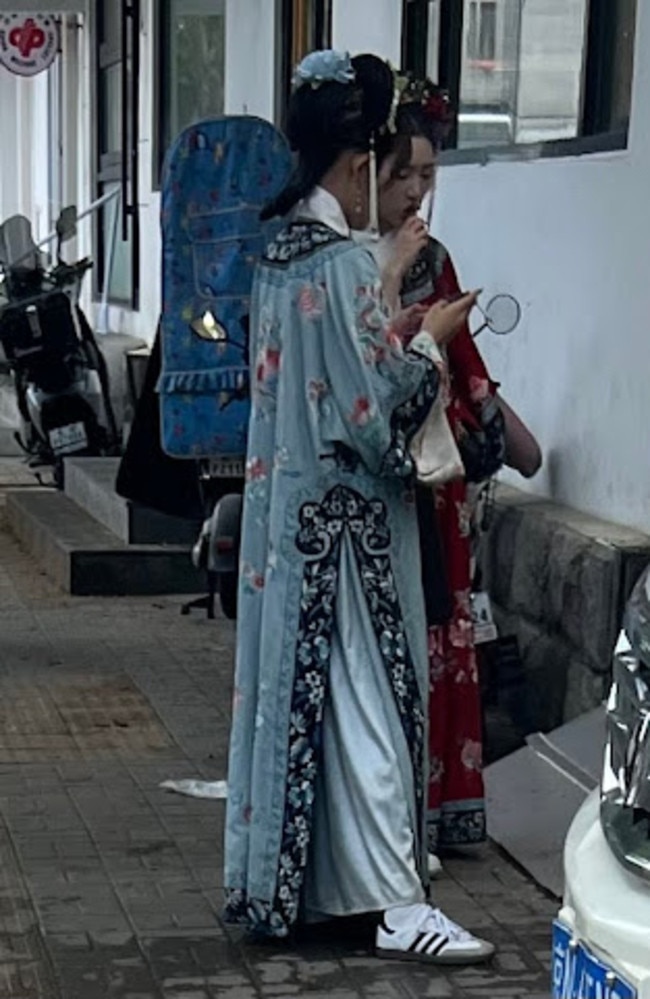
“Hanfu”, the traditional silk dress of Han-Chinese people, has history predating the common era. iMedia Research estimates China’s Hanfu market is valued at 12.54 billion yuan (more than A$2.5 billion) and rising.
The research also highlights that many tourists and consumers are cosplaying in Hanfu to get good social media pics.
That was pretty consistent with my overall Hanfu observations.
The Hanfu reality check really hit once I entered a building looking for bao.
What I discovered was a commercial building entirely dedicated to Hanfu.
The relentless economics of Hanfu costume, Hanfu accessories, Hanfu photography studios, and Hanfu customers sucked the wonder out of Hanfu for me.
For a moment there, however, in some of Beijing’s historical alleys, it really did feel a little like it was 223 BCE.
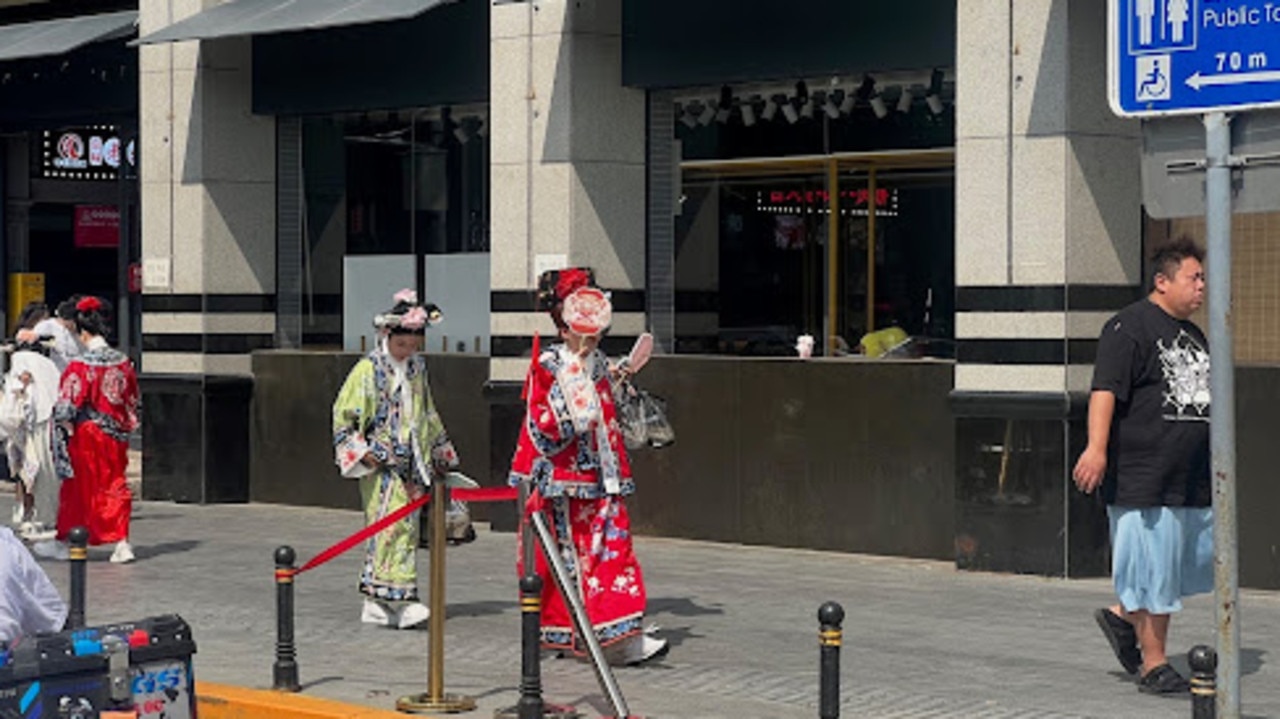
How I stopped worrying and learnt to love to sweat in Beijing
Nobody wants to be the town sweat hog.
But I exerted myself in the Beijing heat – if you’ve ever reached into the oven for a tray of your own baking, you know what that feels like – to spirit my connection with the city.
That meant legging more than 20km of rapidly urbanising Beijing streetscape per day.
These bouts of heliophilic indulgence had me reminiscing about Rudi Juliani’s infamously sweaty news conference after the 2020 presidential election.
But I was at peace looking like a silverback accountant after Wednesday night racquetball practice, because I was sweating the sweat of discovery.
In this suspended state – which required more wardrobe changes than Taylor Swift on the Eras Tour – I braked at caged crickets chorusing outside a shop front in Chaoyang District; I chanced through the red doors of a Hutong dwelling in Dongcheng, which turned out to be the former home of 20th century literary giant Lao She. With sweat freely beading on my lip and my face a flush of prickly crimson, I watched a young traffic cop in white gloves standing island-like in the hypocentre of a roaring intersection, directing a city with six million motor vehicles – not to mention bikes and pedestrians – with a wand.
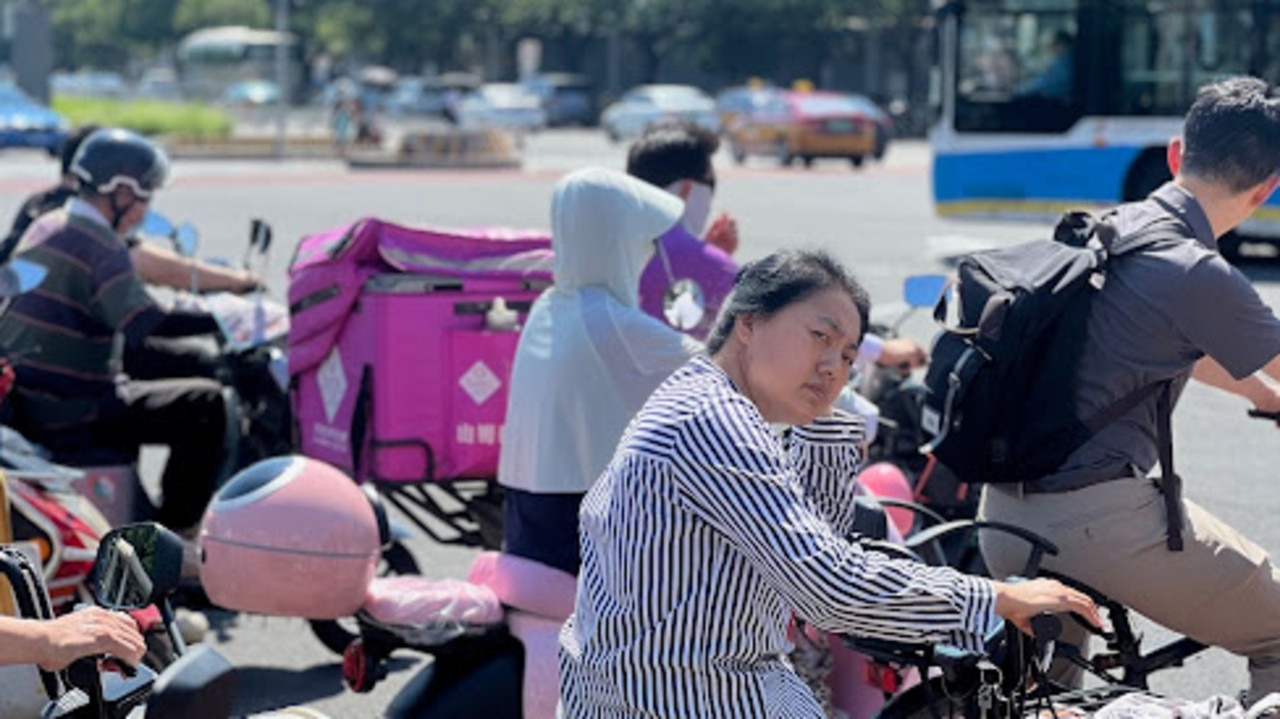
None of this would have been truly visible without sweating buckets to get the ground-level vantage points.
Admittedly, I did covertly drip-dry in Dior once, and lowered my thermal temperature in Starbucks, but a trip to China seemed like a pretty great reason not to go to an airconditioned mall.
You’ll never see a Beijing Bikini in there.



